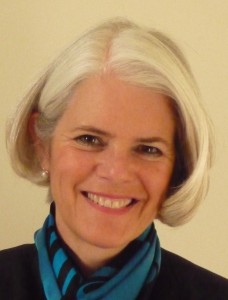
Many years ago and before we had children, my husband and I took a week-long holiday at a Caribbean resort. We befriended a couple from Baltimore who had an interesting story to tell. When I asked “What do you do?”, the woman answered, “Well, I used to be in the insurance business, but I quit my job to look after my Mom full-time. She needs a lot of help and she would rather stay at home and have someone in our family give care instead of professionals. So we made a deal that my husband and I will move in with Mom, I’ll be her paid caregiver and my husband will continue working as usual. I start my new job with Mom next week!”
I nodded and smiled politely and exclaimed that I thought these arrangements were very imaginative. But secretly, I was shocked by how a daughter could turn family caregiving into a commercial transaction. Didn’t this woman love her mother, I wondered. Of course, these were the naive thoughts in my head before I became a caregiver myself.
Now looking back, I think this woman did a wonderful thing for her mother. And she did so without shortchanging herself – she even told me that she’d drawn up a contract with her Mom so there would be no misunderstanding. How clever!
I think caregiving contracts in families are a fabulous idea. Of course, none of us wants to commercialise the kind of loving occasional care that is freely exchanged between family members and close friends. But when caregiving becomes a full-time job, or one sibling in the family takes on a much greater share of parental care, there should be some reasonable recognition of that labor.
A quick search of family caregiving contracts yielded lots of templates. But all the sources I found had roughly the same advice – care contracts within families should include the following basic information:
A personal care agreement should include the following basic information:
- When the care will begin.
- What tasks you’ll perform. Be specific and thorough, but also include the term “or similar tasks to be mutually agreed upon by the parties.” This gives you both some flexibility, so that you won’t feel like you need to rewrite the agreement every time you change the tasks you perform.
- How often, and for how many hours, you’ll provide this care.
- How much you’ll be paid, and when the payment will be made.
- How long the agreement will stay in effect. This can be a set time, like six months or a year, after which you can both decide whether you want to make any changes. It may be simpler, though, to make the contract open-ended, described with a phrase such as, “This agreement shall remain in force until terminated in writing by either party.” In that case, either of you can end the arrangement at any time simply by writing a signed, dated note saying that the agreement is over, and giving the note to the other person.
- A statement that the terms of the agreement can be changed only by mutual agreement, in writing, by both parties.
Even if you don’t want to execute a formal contract, ensure that there’s a clear and shared understanding of how out of pocket expenses will be reimbursed. Forprimary carers of children with disabilities, the principle of ‘Pay Yourself First’ is a good planning strategy. A lot of mothers of children with severe disabilities, myself included, forego paid employment so long as their child is living at home. After many years, full-time caregivers are left without pensions or financial security, especially if they are single parents (luckily, I am still happily married after forty years, and we have saved for our retirement, thank goodness). The principle of paying oneself first not only gives value to care work, but it creates an emergency fund of one’s own. Economic independence for family caregivers is a cornerstone of self-worth and personal freedom.
April 23, 2017



















